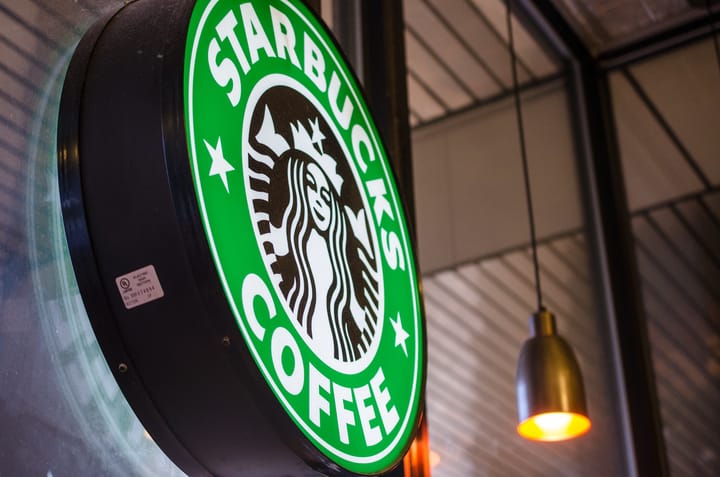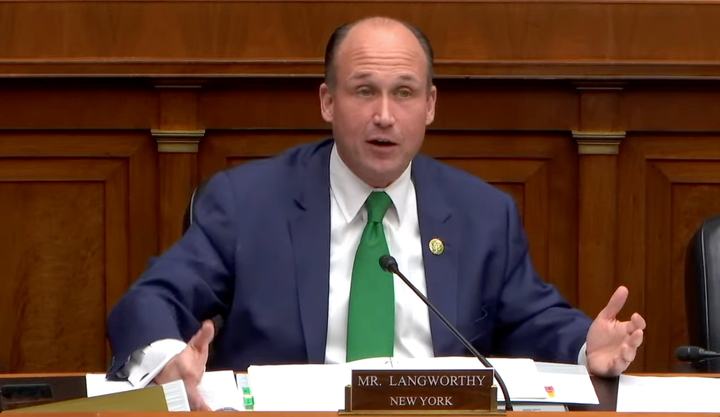Nike, Starbucks, and Walmart project a green image, but behind the scenes they’re bankrolling lobbying groups that fight the very policies needed to cut emissions and combat climate change, according to a new scorecard from the corporate responsibility nonprofit ClimateVoice.
The updated rankings also add Procter & Gamble and Uber to the list of companies whose trade group lobbying contradicts their advertised sustainability efforts. The 20 named companies are all members of the U.S. Chamber of Commerce or the Business Roundtable (BRT)—most are affiliated with both. The two trade associations are among the highest-spending federal lobbying groups opposing climate-related legislation and regulations aimed at cutting greenhouse gas emissions.
In addition to highlighting their trade associations, ClimateVoice’s scorecard looks at the number of lobbyists hired by each company who work for the fossil fuel industry. The firms examined—all of them in the top 650 of the Forbes Global 2000 list of the largest public companies—have been active in climate policy through lobbying and corporate disclosures. None have signed ClimateVoice’s business statement, which urges them to push the U.S. Chamber and BRT to reverse course on climate issues.
“These are companies that have stated values and commitments relative to climate action and sustainability goals, and they have an opportunity to be strategic leaders in this space,” said Deborah McNamara, executive director of ClimateVoice. “They are not using their influence for climate policy progress, and they should be.” The group’s scorecard project is called Guilt by Trade Association.
Walmart has quietly backtracked on its climate pledges this year. The Financial Times found in March that the giant had removed sections from its website where it had said it was “deeply committed to addressing climate change.” In 2020, Walmart set goals to reduce its operational greenhouse gas emissions by 35% as of this year, but in December the company acknowledged it will miss its target, and said that a 65% reduction by 2030 is not in the cards. Research cited by ClimateVoice found that 70 Walmart lobbyists also represent fossil fuel industry clients.
Walmart CEO Doug McMillan is an at-large board member of the BRT, a lobbying group of over 200 CEOs. In April, the BRT recommended that Congress pass legislation to prevent shareholder resolutions on environmental, social, or political issues from being presented for votes at meetings.
Despite in 2018 putting out a high-profile statement whereby its members promised to protect the environment, last year the BRT argued against a disclosure rule for climate-related risks in an amicus brief filed in a lawsuit against the Securities and Exchange Commission (SEC).
Nike, too, has slipped in transparency around its sustainability practices—this year will be the first time since 2019 without an annual corporate responsibility report that covers its environmental impacts. On one of its website’s many pages on sustainability, Nike still describes itself as on a “journey toward zero carbon and zero waste,” but it discloses dues payments of $100,000 and $399,000 to the BRT and up to $75,000 to the U.S. Chamber.
In the final days of 2024, the U.S. Chamber and fossil fuel industry lobbying group the American Petroleum Institute (API) joined up to sue the state of Vermont over a groundbreaking law that would force fossil fuel companies to pay for a portion of the damages caused by climate change. Two months later, the U.S. Chamber filed a similar lawsuit against New York, challenging a law known as the Climate Change Superfund Act, signed into law on Dec. 26, 2024, that holds polluters liable for climate degradation and requires them to pay for adaptation projects and mitigation efforts.
Fossil fuel giants ExxonMobil, Chevron, and ConocoPhillips have all disclosed membership in the U.S. Chamber in recent years, though the group keeps its full member roster secret. The Chamber has been the first or second-highest lobbying spender at the federal level every year since 1999, according to OpenSecrets, in the past disputing the science that human activity causes climate change and spending millions to kill climate policies like 2021’s Build Back Better Act and 2022’s Inflation Reduction Act. A February 2023 report by the UK charity InfluenceMap, whose research went into the ClimateVoice scorecard, found that the Chamber’s lobbying priorities are closely aligned with fossil fuel groups like API, even as many of its members publicly claim to support climate action.
Starbucks weakened a key climate policy earlier this year, revealing in a March proxy statement that it would no longer factor greenhouse gas emission reductions in its long-term pay incentive plans for executives. The chain paid between a quarter and a half a million dollars in dues to the BRT as of its most recent disclosure.
Other climate obstructors on the list of big brands include PepsiCo and Salesforce, both of which have recently softened or reversed climate commitments. In May, PepsiCo blamed insufficient support from policymakers and a lack of investment in clean energy for why it was lowering its emissions reduction targets. Also last month, Salesforce quietly withdrew its emissions pledges and watered down how it calculates “scope 3” emissions.
“It’s important for employees, business leaders, and consumers to understand that these companies are using their influence to support the opposition to climate policy progress at a critical moment when we need these companies to be leading and speaking up for climate policy progress,” McNamara said. “Especially now, under this administration and with the threats to clean energy provisions and incentives, we need these companies that have clean energy-related goals to be standing up for policies that would promote a clean energy transition.
“But instead, companies have been largely silent in 2025,” she said. “We’re wondering where are the voices of companies that say they care about climate leadership, corporate responsibility, and business as a force for good.”
Both the Chamber and BRT increased their federal lobbying spending in 2024—the former by nearly 10%, to about $76.3 million; the latter by nearly 20%, to $23.4 million.
Image via Flickr member m01229 used with a Creative Commons license.



